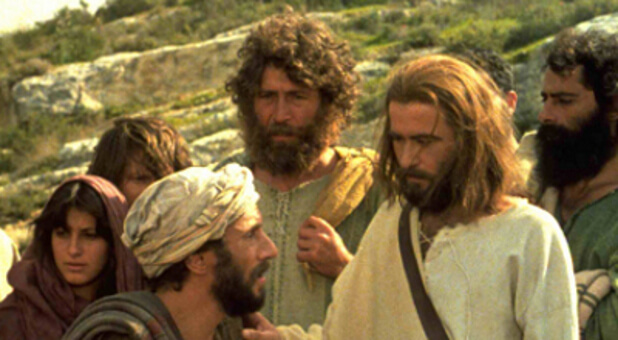This Sunday, Christians around the world will celebrate Pentecost, the day 2,000 came to Christ when the Spirit was poured out on the disciples.
Only a few days before that moment, Jesus had left the disciples with a mission—to preach the Good News around the world. It is the same mission Jesus has for us today, and I think we can understand this call by looking at how Jesus spent his time after his resurrection and before Pentecost.
As important as it was, the resurrection wasn’t the end of the story. Maybe, in the words of Winston Churchill, it was the end of the beginning. Between his resurrection and the pouring out of the Holy Spirit, Jesus invested time teaching His disciples about their next steps, which the Spirit would empower them to do. When we understand Jesus’ story, we can see that he was launching the most powerful revolution in history, the kingdom of God.
My own understanding of this final period of Jesus’ earthly ministry was shaped by the question: Why did Jesus leave?
No preacher I’d ever heard addressed it, but it seemed so fundamental. Having finished what God sent Jesus to do, why didn’t He just wrap up history right then and there? After all the dramatic events of his ministry—healings, teaching, preaching, miracles and then defeating death—Jesus instead chose to leave. Why not gather the nations, sit down on the judgment seat, separate the sheep from the goats and set up God’s eternal kingdom?
So just why did Jesus choose to leave?
What does the Bible say that Jesus did instead? He told his followers to establish and build the kingdom of God on earth. “Therefore go and make disciples of all nations, baptizing them in the name of the Father and of the Son and of the Holy Spirit, and teaching them to obey everything I have commanded you. And surely I am with you always, to the very end of the age” (Matt. 28:19-20).
Jesus also told his disciples, “This gospel of the kingdom will be preached in the whole world as a testimony to all nations, and then the end will come” (Matt. 24:14).
When you put these two statements together, I think we can better understand what was happening at this moment when the church was born. It seems clear that following his resurrection Jesus imparted a critical mission to his followers.
His work was finished, but ours wasn’t.
You see, we aren’t just awaiting Jesus’ return. Jesus gave us a mission to accomplish. He wanted his followers to take the world by storm, reforming, redeeming and restoring every aspect of human life. It was a new dream for human society that would turn the values of the ancient world upside down.
Men and women gathered together in churches to live under God’s authority, governed by God’s rules. It was a kingdom without borders, in which every citizen would be loved and valued without regard to nationality, ethnicity, male or female.
This was a kingdom characterized by the attributes and values of God Himself: integrity, mercy, compassion, forgiveness, faithfulness, justice and love. In God’s kingdom, citizens would love their enemies, be generous with their money and possessions, live lives of integrity and seek justice for all. This wasn’t a vision of utopia, but a concrete plan for communities of God’s people established in every nation of the world.
That means something for you and me today. We are called to replace the agenda that our culture wants us to embrace with Jesus’ mission. The things of this world—pursuit of financial success, entertainment and worldly desires—we must let go of. Instead, we are called to simply live out God’s kingdom.
We are to love our neighbors, care for the suffering, and disciple followers of Jesus in these communities of God’s people. We are to be generous, love our enemies, bless those who curse us and seek justice. We’ve been sent to show the world a different way to live.
If we want to know God’s calling on our lives, it is simply this: to fulfill the mission Jesus gave when he left. Preach this gospel of the kingdom to all nations, baptize and disciple the followers of Jesus. And live according to the revolutionary values of the kingdom of God.
Richard Stearns is president of World Vision US and author of The Hole in Our Gospel and Unfinished.












